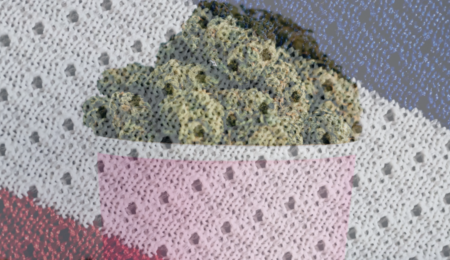France Enters the Medical Cannabis Sector

French authorities issued a decree last month that authorizes the cultivation of cannabis for medicinal purposes. The decree took effect on March 1, 2022, allowing regulators to begin the process of structuring the industry. It's a small step for France, but big for Europe.
The decree establishes a foundation upon which a legal cannabis sector can begin to function in the largest-by-territory country within the EU block.
The decree has amended some parts of France's Code of Public Health to allow growing operations, production, manufacture, transport, import, export, and possession of cannabis and other plant-derived products for medical uses.
The French National Agency for the Safety of Medicines and Health Products (ANSM) will oversee the creation of a medical cannabis supply chain. A special committee set up by the ANSM will assess different aspects of the supply chain.
Agency committee members are expected to identify the best cannabis strains for medical treatment, evaluate THC and CBD levels, methods of ingesting and determine pharmaceutical quality criteria.
ANSM is already supervising a pilot project French health authorities launched last year, involving 3,000 patients who suffer conditions such as chronic pain and epilepsy. The initiative examines how these patients respond to medical cannabis drugs and it will conclude by early 2023.
To support its pilot project, France has imported medical-grade cannabis from abroad. It is unclear whether ANSM will continue cooperating with foreign companies as it proceeds to shape the industry's future in the country. There's a high probability the agency will seek to delegate the production of medical cannabis to only one industrial operator, which automatically could create a limited market.
If it comes to that, France won't be alone. Neighboring Italy is a living example of a limited medical cannabis marketplace, where the lack of domestic production is substituted with cannabis imports from foreign countries.
A hot topic of debate in France has also been whether flower is acceptable to be used as the final product for patients. An attempt by the French government to ban CBD flower was overruled by the country's highest court earlier this year as efforts were underway to establish a regulatory environment for the CBD market.
In recent years, the sale of CBD-based products has exploded in France, and CBD shops have thrived. Because CBD flowers are not regulated, they have become the subject of political controversy.
A history of harsh penalties on cannabis possession—some of the most rigid within the EU—may offer an explanation why France is hesitant to take bolder steps into regulating the sector. Until recently, possession of cannabis has been punishable with a fine of over $4000 and jail time for up to a year. And there have been more harsh sentences for more severe breaching the law. Medical users have not been spared from the hefty fines practices by the authorities.
France reduced fines for cannabis-related offenses only in 2020. An on-the-spot fine of €200 is reducible to €150 if paid within 15 days or increased to €450 if paid after 45 days.
While the European country may take a while to finetune its cannabis laws, having one of the big EU members officially step into the nascent industry is a major moment for the entire movement. A small necessary step towards a greater cannabis reform on the old continent.
C'est très bien!








